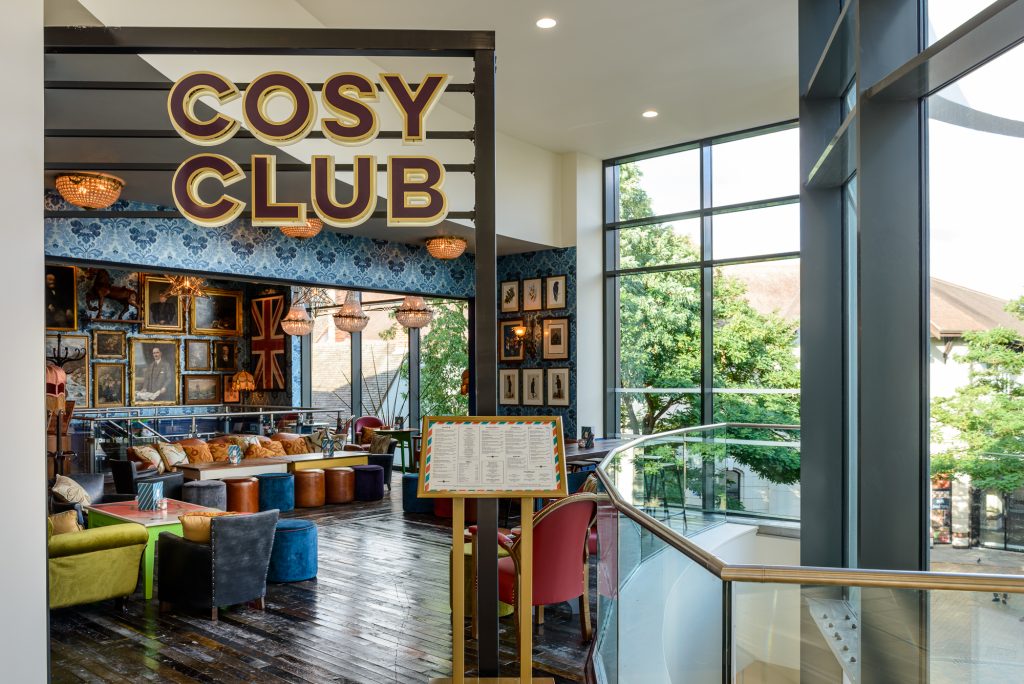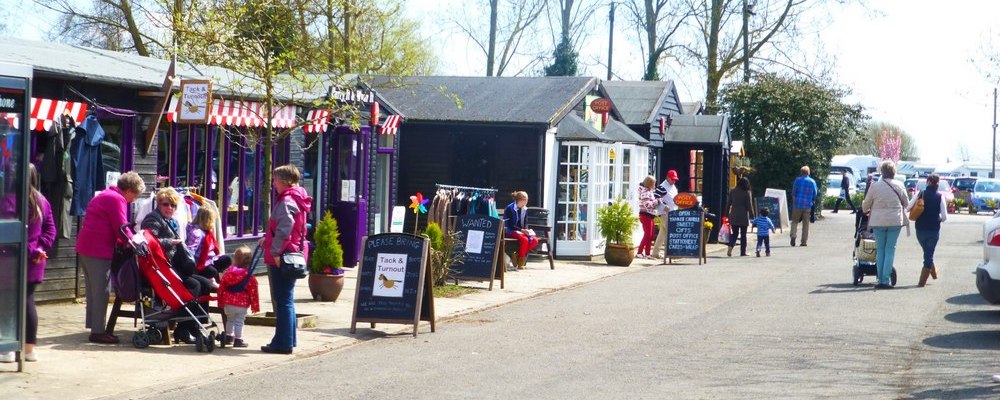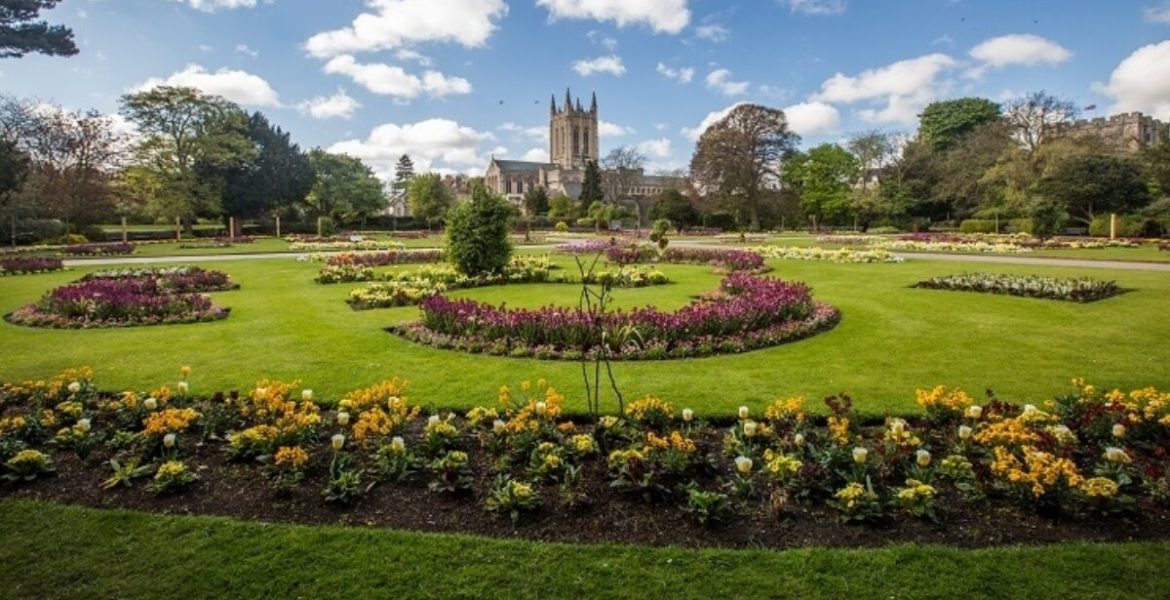Mention the word “Belgium” to many and they will still immediately think of two things: frites and beer.
Well, two of the country’s most iconic symbols have now been “adopted” by a couple of towns in England – Bury St Edmunds and Ipswich.
Businessman Rene van den Oort has opened a “Belgian-style” bar, serving speciality Belgian beers, in Bury St Edmunds while a Belgian-style friterie has recently opened in Ipswich.
Belgium still sadly often remains under the radar for most Brits but such initiatives, albeit modest, show the impact this Low Country can still have – at least in these two towns.
van den Oort is especially excited about bringing one of Belgium’s best exports – its beers – to his part of England.
Dutch-born Rene told this website, “I was born near Breda in The Netherlands, very close to the Belgian border, so I grew up on Belgian beers!”
The Belgian beer bar is called Vespers and is run by his son Max. The beers are served (just like in Belgium) in smaller sizes and the idea is to offer the people of Suffolk something “thing different.”
In fact, this part of the country, itself often overlooked by visitors from Belgium, also offers “something different.”
Indeed, for anyone looking for a late summer getaway – or maybe a visit later in the year to enjoy the 1,000 birthday celebrations of the Abbey of St Edmund – the county makes for an ideal destination.
Both Bury St Edmunds and Ipswich have got a bit of everything, ranging from the smallest pub in England and ghosts galore to a very famous former literary resident and fascinating history going back to the first millennium B.C.
If travelling from Belgium your first stop is likely to be Ipswich which has its very own claim to fame: it is said to be England’s oldest town.
Suffolk’s county town does appear to have been the first town founded by Anglo Saxons after the fall of the Roman Empire.
Local historian Caleb Howgego says, “Yes, Ipswich is arguably the oldest continually inhabited town in England.”
Once you’ve digested the fascinating fact that you’re actually where the first beginnings of a town in Anglo Saxon England began, you’ll find there’s much else to enjoy here beside its impressive history.
A great place to stay the night (or more) is The Salthouse Harbour Hotel, ideally located at the heart of the town’s fantastic marina.
Set in a wonderfully-restored salt etched brick warehouse overlooking the town’s historic and impressively renovated waterfront, the 70-room, boutique hotel is an oasis of calm and relaxation in an otherwise busy town. With a contemporary urban style, it has plenty of nice quirky touches, the sort of things that set it apart from other hotels.
The tranquil setting, on the crescent-shaped Neptune Quay harbour, makes for a delightful way to unwind after a day out (maybe on the river Orwell).
After taking in the sea air you may have built up an appetite and a great local place to sate your hunger in Suffolk’s county town is The Cosy Club, which is now one of over 30 Cosy Club restaurants in the country.

This ever growing “chain” was originally founded by a trio of long standing friends, Dave Reid, Alex Reilley and Jake Bishop. Having spent years in the restaurant and bar trade they decided it was time they did their own thing. The motivation was simple and a bit selfish: they wanted somewhere to run themselves.
The Cosy Club concept itself first came to fruition on 10 September 2010 when a beautiful building in Taunton became available: the very first Cosy Club was born. A sign of its success is that the 32nd recently opened in Chester.
Diners find an elevated experience here, with table service, a refined menu and “everyday elegance.”
The menu at the Ipswich “branch” of this go-ahead Bristol-based company includes a wonderful mix of very tasty meat and fish dishes, with many of the ingredients being source locally. You won’t break the bank eating either as the prices are very affordable, not least given the quality of the food. The interior here is slightly different but a recurring theme are the walls, adorned with dozens of fascinating photos and assorted artwork.
By way of contrast to the hustle and bustle of Ipswich, your next stop in Suffolk should be Bury St Edmunds (and not just for those Belgian beers), a town which has a particularly remarkable back story.
But, before you find your way to this delightful town, be sure to stop and check out another terrific spot in Suffolk: Stonham Barns Park, neatly and very conveniently sandwiched between Ipswich and BSE, and great for either a day out or overnight stopover.

This is a very pleasant bustling (yet peaceful) family complex offering holiday accommodation, attractions and activities, all based at the very heart of the county.
Located next to the Suffolk, Norfolk and Essex coast, the park, set in 140 acres of lovely parkland, includes state-of-the-art static 2 and 3-bedroom, double glazed caravans sleeping up to 6 people (as well as glamping, camping and motorhomes).
Its self-contained static holiday park epitomises the best of family fun in a luxury, fully furnished home-from-home stay with a full range of onsite attractions, entertainment and shopping facilities designed to keep everyone busy. All supplies you might need are nearby including gas bottles and coal for BBQs, a children’s funfair and bouncy pillow. There is a woodland walk where guests can see birds and red squirrels and enjoy a sensory garden. Fishing is also available at the park’s two abundantly stocked lakes.
Also on site is a popular shopping village with some nice independent outlets, small theatre, great 9-hole golf course, foot golf, pirate themed adventure golf, kids’ play facilities and the Suffolk Owl Sanctuary with an impressive display of owls and other birds of prey.
The park has really benefitted from the boom in staycations among Brits but does also attract overseas visitors and makes for a very good base to see the region.
Suffolk itself is one of England’s less touristy regions yet its links to Belgium go back further than you might think – all the way to 1327, in fact.
Back in the 14th century, one Abbot Richard, who then ruled the roost in these parts, was kidnapped and smuggled to Brabant in the southern half of Belgium.
It’s an event that’s recalled on a plaque in the very pleasant Abbey Gardens in Bury St Edmunds.
An entertaining 90 minute or so tour of the abbey grounds is a “must do” while visiting this historic market town. Highly trained tour guides like the very knowledgeable and friendly John Saunders tell you all about the town’s history, including the fabulous and beautiful Abbey Gardens, ruins and Abbey Gateway. John, a former policeman, is a real font of knowledge and happily also answers all questioning on his beloved town.
You should also try to pay a visit to the nearby St Edmundsbury Cathedral, just on the edge of Abbey Gardens and St Mary’s Church, final resting place of Henry VIII’s sister Mary Tudor, Queen of France.
For those unfamiliar with it, Bury St Edmunds is a fabulous and friendly market town in West Suffolk., little wonder John is so proud of it. It has a great history dating back to the first millennium B.C. and enjoys a great mix of culture and entertainment plus (and this might also be of interest to beer-loving Belgians, an “ale trail”.
It has the reputation as the “foodie capital” of Suffolk, boasts the UK’s only surviving operating Regency Theatre and thoroughly deserves its reputation as a “Jewel in the Crown of Suffolk” (as displayed on its welcoming road signs).
The Abbey of St Edmund, founded by King Cnut, was built over 1,000 years ago and this year is a particularly opportune time to visit the town in order to join in the year-long birthday celebrations to mark the centenary (delayed from 2020 because of the health crisis). These culminate on the Saint’s feast day weekend of 20 November. The full and detailed programme of the many events being held, which also include special Halloween celebrations in November, can be found at www.abbeyofstedmund1000.co.uk
The town, intriguingly, is also home to the Nutshell pub, which claims to be the smallest pub in the country.
The pub measures just 15ft x 7ft – about 4.5m x 2.1m – and is one of the town’s biggest attractions (as well as being its smallest). John tells the story of how a national radio station once tried (successfully) to cram in over 100 people in the pub).
Look out for the mummified cat on and currency notes on the ceiling to historical photos. Plenty to muse over while you enjoy a drink. Speaking of spirits, check out the town’s ghostly encounters down the years,from medieval monks to the infamous Grey Lady, Bury St Edmund’s famous ghost (sighted among other places in the Abbey ruins).
The historic Nutshell, built in 1844 and also said to be one of the most haunted in England, is close to the medieval Moyse’s Hall Museum, housed in one of the last surviving Norman houses in Britain and offering (like the town itself) a fascinating glimpse into the past.
Probably (and for good reason) the most sought after bed for the night can be found at another history-crammed place, The Angel Hotel, a truly wonderful base for exploring the immediate area which (like the Salthouse in Ipswich) has been owned by the Gough family since the 1970s.
Even here, there’s another local Belgian connection in the form of the beautiful Flemish tapestries which adorn its walls. The ivy-clad, 80-room Georgian hotel is a fine example of historic charm with a twist of urban chic and commands the lovely town centre with its winding cobbled streets and ancient architecture. The main bulk of the hotel is 18th century but the oldest part, dating to the 12th century, used to house tunnels used by monks and roundheads.
Overlooking the historic and pretty Abbey Gardens, the interior is a curious mix of eccentric oddities, vintage furniture and warm and leathery sofas.
If you stay you’ll be in good company as no less a historic figure than Charles Dickens did (twice). Dickens gave readings from Nicolas Nickleby and David Copperfield from a building nearby and was also pleased with the neat little town which he described of “cleanly and thriving appearance.”

Dickens, said to be the greatest novelist of the Victorian era, first stayed at the hotel in 1835 as a journalist for the Morning Chronicle (staying in what was then room 11).
In 1859 and 1861 he returned to the hotel to read to a captive audience at the nearby Athenaeum, staying in what is now room 215 and known as the Charles Dickens Suite.
The hotel’s ground floor refurb, completed in April 2019, features some great nods to Dickens including quotes from the author on mirrors, artwork and copies of his books. The rooms are sought after here so be sure to try and book well in advance for the town’s special events later this year.
A very nice spot to eat locally (in fact, just round the corner from the hotel) is Gastrono-me, an easy going all-day outlet serving an array of hearty yet innovative comfort eats plus cocktails, brunch and dinner.
Belgians (and others) will particularly like this place (there’s another in Cambridge) as one of its specialities are – yes, you’ve guessed – its fries.
The lovely menu features some delightful other, very well priced dishes, all with a contemporary twist. It’s located on the street where, in times gone by, pilgrims marched to the Abbey Gates.
It’s hard to know why the county of Suffolk is not the tourist magnet for overseas visitors that some other UK regions have become because it is easy to reach from London and the border ports and is chock-full of beautiful English villages, gorgeous countryside dotted with thatched cottages and sweet churches, plus some impressive ancient abbeys and forts.
In fact, getting to Suffolk from Brussels and the rest of Belgium couldn’t be much easier and both Ipswich and Bury St Edmunds are located just off the fast A14 and A12. It’s also on train routes from London and Cambridge.
The East of England is known for its beautiful landscapes, sunny weather and a whole world of interesting places to visit and this makes it the ideal destination for a family getaway.
For people from Belgium this may still be a relatively undiscovered corner of England but, with its great heritage, centenary celebrations throughout 2022, quirky places to stay and fabulous food, this year, surely, is the time to (re) discover Suffolk.
Further info:
www.salthouseharbour.co.uk




